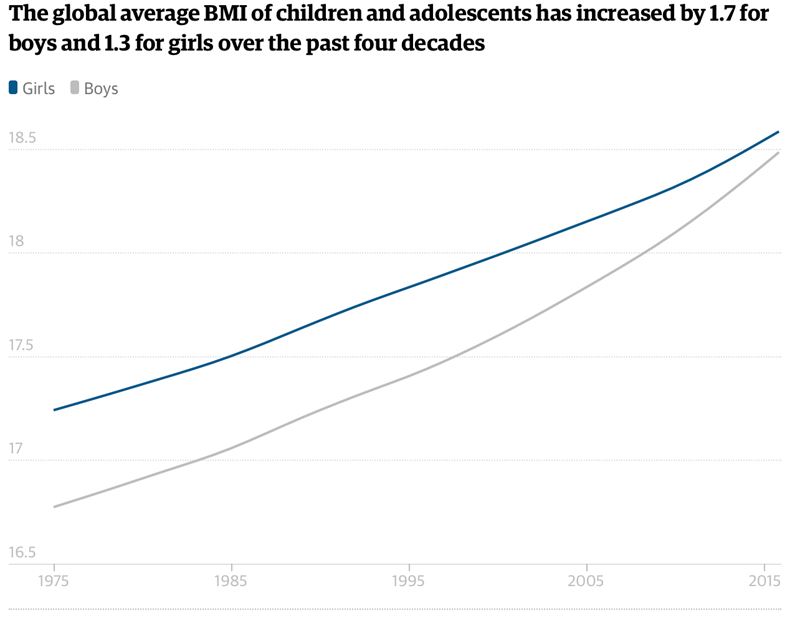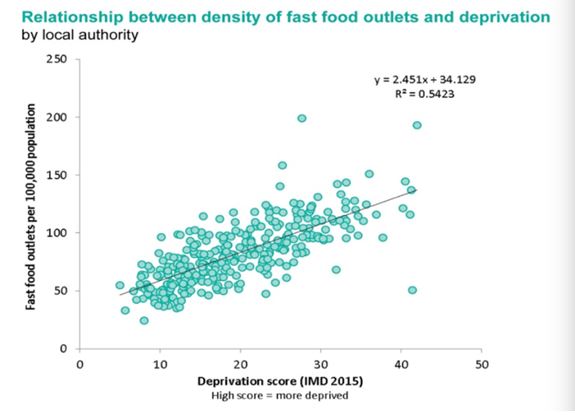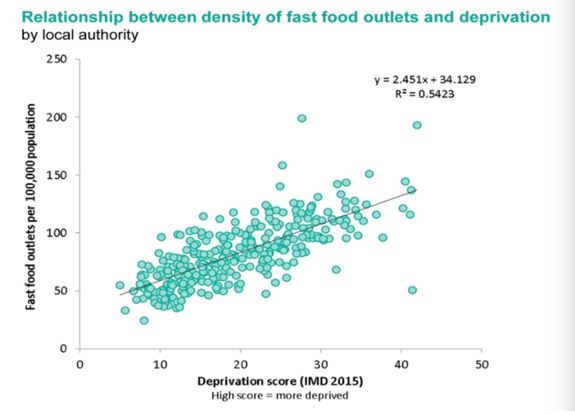Today, in England nearly a third of the children aged between 2 and 15 years old are either overweight or obese and younger generations are becoming obese at earlier ages and staying obese for longer, according to the Survey for England by Health and Social Care Information Centre. In order to halt the obesity crisis, Public Health England (PHE) executed new guidelines on snacking to encourage “healthier snacking” based on the research which shows that kids consume three times more sugar than recommended – with half coming from snacks and drinks. Under the new guidelines, parents are being told to limit treats to a maximum of two 100-calorie snacks a day. Christopher Snowdon, Head of Lifestyle Economics at the institute of Economic Affairs argued in The Sun that telling parents what they can and cannot allow their children to snack on is just another addition to the long list of unnecessary interferences from PHE.
The UK’s policy community has shown some insistence in interfering in the industry of food for children. It was also the first country to introduce scheduling restrictions on food advertisements to children. However, “each year, the childhood obesity statistics tell the same devastating story” said by Caroline Cerny, who leads the Obesity Health Alliance. NHS data in 2017 shows that 9.6% of children are dangerously overweight by the time they start school – an increase from 9.3% the year before. By the time children reach the age of 10 and 11 years old 20% are obese, the statistics for 2016/17 show. Childhood obesity is soaring across the world, increasing more than tenfold over the past four decades. “Most high-income countries have been reluctant to use taxes and industry regulations to change eating and drinking behaviours to tackle child obesity.” Said Majjid Ezzati, lead author of the childhood obesity study from Imperial College London (ICL). Obviously, the result shows that these interferences do not work. The new data from ICL, which is published in the Lancet medical journal, shows that in 1975 there were five million obese girls, but by last year there were 50 million. The number of obese boys has risen from six million to 74 million in the same period. The data shows that child obesity appears to have plateaued in more affluent countries like the UK, but at a high level. The largest increase I obese children and adolescents aged five to 19 since 1975 has been in East Asia, the affluent English-speaking countries of the US, UK, Ireland, Canada, Australia and New Zealand, and the middle East and North Africa. As poor countries – particularly in East Asia, Latin America and the Caribbean – have become wealthier, children who were mostly underweight have also become mostly overweight.

The new guidelines may induce a trend for the new and expensive “healthy” snacks. Under the new guidelines, kids will be urged to swap chocolate bars (Mars bars have 230 calories, KitKats have 209 and Dairy Milk bars have 240) for snacks like plain rice cakes (27 calories), sugar-free jelly (5 calories) and fromage frais (with 41 calories). These guidelines may encourage food companies to put more effort into advertising healthier food and ask a higher price. The Dutch government’s Voedingscentrum, which promotes healthy eating, divided the national statistic office CBS’s list of food products into healthy and unhealthy variants. The costs of healthier foods in the Netherlands have risen by an average 22% over the past 10 years, while ‘unhealthy’ foods are only 13% more expensive now than they were in 2007, according to a report by the national statistics office CBS. For example, the price of semi-skimmed and skimmed milk jumped by an average of almost 60% in the 10 years up to 2017. The British will also face dramatic increases in the price of the healthier snacks for kids.
The potential increases in the cost of a healthier diet may fail to reduce obesity levels but exacerbate obesity and health inequalities in the UK. Data from ICL shows that there is a serious and worsening divide between the richer families and the poorest. Figures from PHE show that 11.7% of children in year 6 of school, aged about 11 years old, were obese in 2016 among the richest 5% of the population, but 26% were obese in the poorest 5%. Analysis of data from the National Child Measurement Programme (NCMP) shows that obesity prevalence in the most deprived 10% of children is approximately twice that of the least deprived 10%. The new guidelines will worsen the divide between the richer families and the poorest and the burden of obesity is falling hardest on children from low-income areas.
Does the government have the right to regulate the parents what they should give kids to eat? We do not believe so. Parents should have the freedom to choose what they are going to feed their children. If they choose to give kids snacks which contain more than 200-calories, parents may then be asked to share the costs of obesity with the NHS. It is estimated that the NHS in England spent £6.1 billion on overweight and obesity-related ill-health in the years 2014 to 2015. The Lancet analysis, released on World Obesity Day, comes as researchers from the World Obesity Federation warn that the global cost of treating ill health caused by obesity will exceed £920bn every year from 2025. The UK-wide NHS costs attributable to being overweight and obesity are projected to reach £9.7 billion by 2050. It is not fair that taxpayer should pay for the individual chooses of many parents. For example, tobacco smokers take the risk to be killed by nicotine themselves or drug addicts do not count on the government to work out the financial budget to pay their bills for drugs. Similarly, if the kids are obese, the parents are supposed to be responsible for the cost of obesity rather than taxpayers. Therefore, to privatise the health insurance is the right direction for the future to reduce the burden of taxpayers. Furthermore, the requirement for calories varies with each child. It is parents’ decision to choose what they want to give their kids and the government should not replace parents.
Children deserve a healthy future by the improvement of the whole food environment and access to physical activity every day provided by a competitive market rather more and more regulations designed by the government. Improving education, both among parents and kids, is clearly essential. We welcome campaigns that attempt to increase awareness; however, imposing restrictions and, possibly taxes, is not the right way to go.





